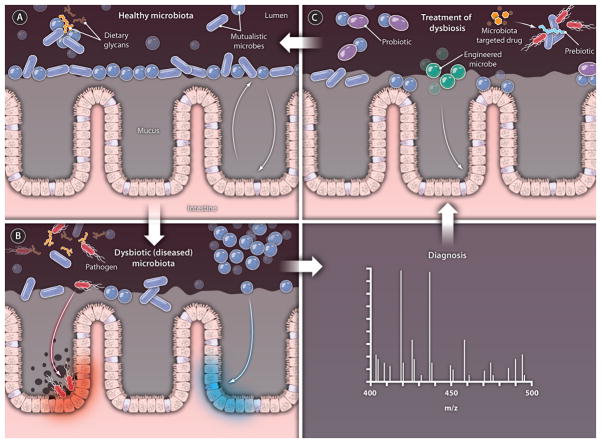Fig. 1. Tipping the balance.
Many factors can cause a shift in the microbiota from (A) a healthy state to (B) a dysbiotic or diseased state. Detection of small molecules that serve as reporters of community membership and function can be used to diagnose the perturbed community and to determine the appropriate treatment (C). In the healthy state (A), a dense population of microbes inhabits the intestine. Resident microbes (tktk) compete for nutrients [such as dietary polysaccharides] (tktk), and an ecologically stable state is maintained through a complex and poorly understood network of host-host and host-microbe interactions. As shown in (B), diverse factors contribute to community disruption and disease, such as pathogen emergence, other alterations in the microbiota composition, and changes in microbiota function and interaction with the mucosa. Treatment of dysbiosis (C) can be accomplished with probiotics (tktk), prebiotics (tktk), microbes that confer gain-of-function, and microbiota-targeted drugs.
CREDIT: C. BICKEL/SCIENCE TRANSLATIONAL MEDICINE

